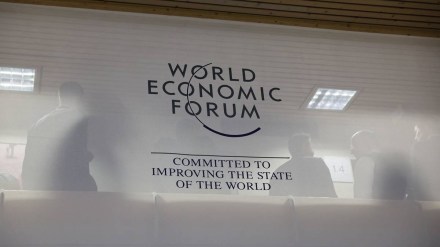The world doesn’t know Davos just because it’s a breathtakingly beautiful posh village in Switzerland’s easternmost canton of Graubunden. The world knows it because it is here that the political and business elite come every year to pity themselves on the miseries of the world and to do good business. The political heavyweights are, however, slowly becoming a rare species—evident from the long list of absentees in this year’s talk fest that ends on Friday. There is no Joe Biden, no Xi Jinping, no Narendra Modi and no Rishi Sunak, either. This was not the case earlier—most notably, in 1988, an agreement known as the Davos declaration was signed and was credited with averting war between Turkey and Greece. Years later, in 1992, Nelson Mandela made his first public appearance outside of South Africa after being released from prison two years earlier. He met with South African President FW de Klerk, and the meeting helped set the stage for a new path forward for the country.
But that’s a distant memory—it is getting increasingly clear that the political elite have stopped taking Davos seriously. Among the G7, only France and the EU are represented this year; the India team is led by Smriti Irani, Union minister of women and child development, and the US is represented by its Secretary of State Antony Blinken. Most of the US’ unusually small delegation left the Alps by the second day of the event—yet another symptom of diluted will to converse on the global stage. To many, the theme for this year’s Davos may sound like a cruel joke—‘Rebuilding Trust’ (“aimed at “restoring collective agency, and reinforcing the fundamental principles of transparency, consistency and accountability among leaders”).
With war in Ukraine, tensions in the Taiwan Strait and South China Sea, Israelis fighting Hamas in Gaza, and missiles flying through the skies from the Red Sea to Pakistan, geopolitical trust has broken down. On paper, the Davos meeting would have been perfectly suited for at least discussing these conflicts seriously. But with most of the principal actors missing, that hope has been dashed. The fractured state of the world was on raw display at a session on Tuesday when European and Chinese leaders gave duelling speeches to open the annual meeting. There are more reasons for pessimism. For example, one of the major topics of discussion at this year’s Davos is a “long-term strategy for climate, nature and energy”. But the discussions so far on this have been thoroughly disappointing. UN Secretary-General Antonio Guterres called for the world to take more united action against global warming, while IMF chief Kristalina Georgieva said countries need to help finance the fight against climate change. Haven’t we heard this many times already?
Unfortunately, Davos has not been able to shake off its image of being a symbol of cloistered elites pampering themselves as they lecture on the need for sustainability. Given the multiple crossroads facing the global economy, Davos must look ahead, not back—to identify solutions instead of just problems. In short, Davos needs to do something more than just being a social opportunity for the world’s wealthy and elite to connect and for some companies to fish for business deals. Otherwise, as they head back down the mountain, the alpine elites may find that their improved mood does not last long.
